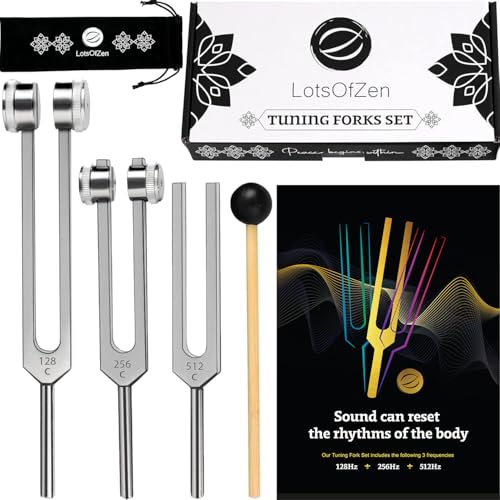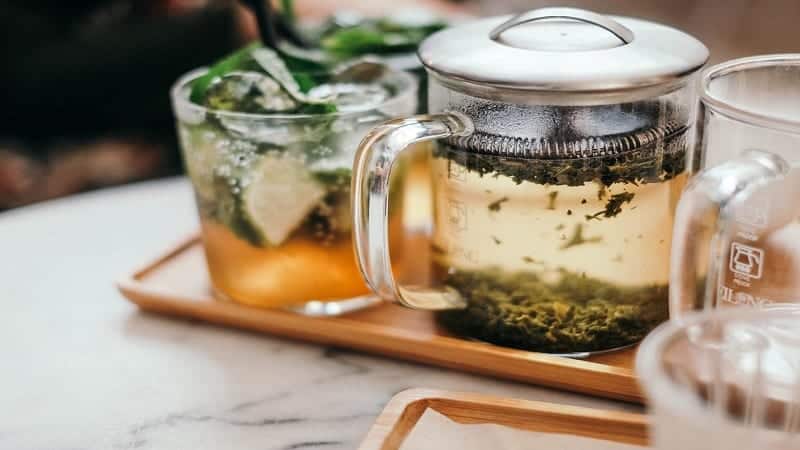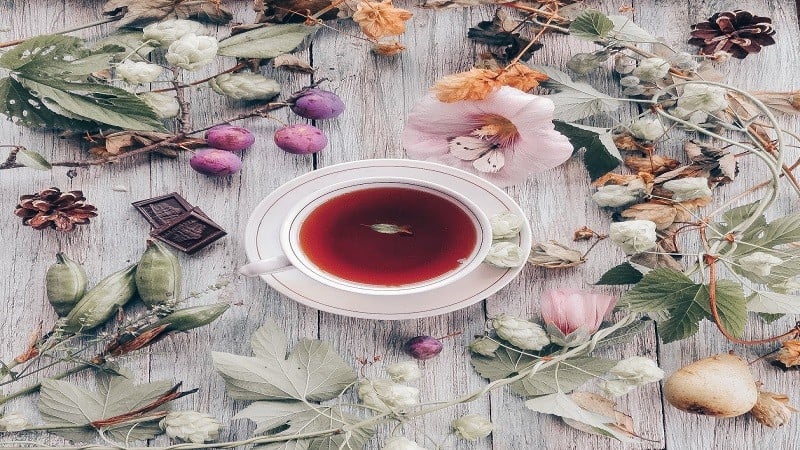Spices, herbs, and plants have had many benefits throughout human history.
They are loaded with powerful natural substances that can inhibit inflammation, thereby reducing the oxidative damage that your body is subjected to.
Thanks to anti-inflammatory effects, these compounds may help reduce the pain instigated by inflammation. They may also cut your risk for various diseases caused or exacerbated by inflammation.
One simple way to avail of these benefits is to consume herbal teas.

Here are the best herbal teas for inflammation.
Green Tea
ASIN: B000S806QW
Green tea is produced from the same plant that black tea is made from. However, due to different processing, the green color is retained. Hence the name – green tea.
Green tea has a wealth of health-boosting substances. Perhaps the most powerful of all these is epigallocatechin-3-gallate.
Since EGCG possesses formidable anti-inflammatory capabilities, it has been found to relieve some of the distress from inflammatory bowel diseases.
In one study that lasted almost 2 months, patients suffering from ulcerative colitis (who did not benefit from conventional medication) were treated with medicine that was based on EGCS. Improvements in symptoms were found in 58% of patients, while there was no improvement in the control group.
Green tea has been found to have a powerful anti-inflammatory. Hence, it can reduce some of the adverse health conditions created by elevated inflammation.
Although green tea is relatively safe, it does have caffeine. This may disrupt sleep in some people. So when drinking green tea, you should pay attention to the impact it has on your sleep. It would be best to consume green tea at least 10 hours before sleeping to not disrupt sleep.
Also, green tea is known to react with some medications. Hence, you should consult your doctor before drinking green tea if you are on meds.
Holy Basil
ASIN: B00KFOM60S
Holy basil is also called tulsi in the Hindi language. This herb is native to southeast Asia.
Holy basil has a solid reputation in traditional Ayurvedic medicine, where it has lofty titles like the ‘queen of herbs’ owing to its numerous health benefits.
Holy basil may help your body cope with metabolic and emotional stress. Such stresses are the core factors behind inflammation due to which chronic diseases ensue.
Studies carried out on human and animal subjects have noted that this herb is capable of improving blood pressure, cholesterol, and blood sugar.
Holy basil also has specific substances that can counter high uric acid levels, thus reducing the pain emanating from inflammatory diseases such as arthritis and gout.
Tea made from holy basil has good safety for most people. Speak to your doctor first before taking it.
Turmeric Tea
ASIN: B01IMVL0OI
Turmeric has an active compound known as curcumin. This is responsible for many of the health-promoting effects of turmeric, and it imparts the characteristic yellow hue to turmeric. It works by hindering certain pathways in the body that can cause pain and inflammation.
In one study that lasted 6 days, people stricken by osteoarthritis pain were given 3 doses of curcumin each day which amounted to a total daily dose of 1,500 mg. Compared to those who were administered a placebo, subjects taking the curcumin supplement reported significantly less pain and better physical function.
However, you should note that large doses of curcumin are involved in this study. So it is not certain that turmeric tea will produce the same benefit.
Curcumin has a much better absorption rate than black pepper. So add some of this fiery spice to your turmeric tea.
Ginger Tea
ASIN: B002XWSNCA
Ginger is loaded with antioxidants. More than 50 types of antioxidants have been found in it. Most of these substances work by reducing cytokine production – a major cause of inflammation.
A 12-week study was carried out on diabetics. Compared to subjects taking a placebo, diabetic patients consuming 1.6 grams of ginger every day were found to have improved triglycerides, cholesterol, and blood sugar. They also had fewer inflammatory markers such as C-reactive protein or CRP.
Likewise, a study was carried out on osteoarthritic subjects. Those who consumed 1 gram of ginger each day for three months were found to have substantially lower levels of inflammatory blood markers.
However, one key fact to note is that the amount of ginger used in these studies was much higher than what ginger tea can provide. Hence, the results of these studies may or may not apply to ginger tea.
Rose Hip Tea
ASIN: B01LP3V1TY
Rose hips are the edible fruits that remain on a rose bush when it loses all of its flowers. These have found plenty of use in herbal medicine for well over two millennia since they are loaded with vitamins E and C, plenty of beta carotene, and lots of other antioxidants.
Rose hips are rich in phenolic substances. These are potent antioxidants that can protect against free radical damage.
There are studies indicating that rose hips can bring down pain and related symptoms in rheumatoid arthritis by slashing the production of inflammatory cytokines. Rose hips also have health-boosting fatty substances that can reduce the production of inflammatory substances that can lead to pain and inflammation.
Fennel Tea
ASIN: B015OGE4JM
Fennel not only fights inflammation it also boasts a pleasant mild taste. Fennel may be good for you since it is rich in phenolic compounds that resist inflammation.
One study found that women consuming high amounts of fennel each day experienced significantly less menstrual pain.
Our Final Thoughts
Herbal tea for inflammation just might work for your inflammation-induced pain. The best part about these teas is that they are generally safe for most people.
However, before trying out anything, you should talk about it with your doctor.






















